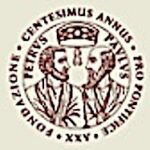Pope Francis’ address to the Uniapac International CongressPaul VI Audience, Vatican City, 21 October 2022
UNIAPAC is an oecumenical organization of Christian Business Leaders Associations
from 40 countries in Europe, Latin America, Africa and Asia
“All our abilities, including success in business, are gifts from God”
Dear leaders and participants in the 27th UNIAPAC World Congress!
I greet you and welcome you at this important meeting to reflect and strengthen your commitment to your noble vocation as entrepreneurs (cf. Enc. Laudato Si’, 129).
We must never forget that all our abilities, including success in business, are gifts from God and “should be clearly oriented to the development of others and the eradication of poverty, especially through the creation of diversified employment opportunities” (Enc. Brethren All, 123).
Change always requires courage. But true courage also requires us to know how to recognize divine grace in our lives. Thus the psalmist writes: “Hope in the Lord, be strong, / strengthen your heart and hope in the Lord” (Psalm 27:14).
I pray that, during these days together, and especially as you return to your homes and workplaces, you will always remain aware of God’s grace and wisdom in your lives, and that you will enable him to guide and direct your relationships in business and with those who work for you. “We are called to be creative in doing good, […] using the goods of this world – not only material goods, but all the gifts we have received from the Lord – not to enrich ourselves, but to generate fraternal love and social friendship“ (Angelus, 18 September 2022). Generate social friendship.
The theme of your Congress poses a great challenge to you and to many other actors in the business world: To create a new economy for the common good.
There is no doubt that our world urgently needs “a different economy, one that gives life and does not kill, includes and does not exclude, humanizes and does not dehumanize, takes care of creation and does not plunder it“.
In continuing to reflect on a new economy, but above all in beginning to put it into practice, it is a question of keeping in mind that economic activity “must have as its subjects all individuals and all peoples. Everyone has the right to participate in economic life and the duty to contribute, according to their abilities, to the progress of their country and of the entire human family […]: it is a duty of solidarity and justice, but it is also the best way to advance the whole of humanity”.
Therefore, any “new economy for the common good” must be inclusive. Too often the slogan “leave no one behind” is uttered without any intention of offering the sacrifice and effort to truly turn these words into reality. In his Encyclical Populorum Progressio, Saint Paul VI wrote: “Development cannot be reduced to mere economic growth. To be authentic development, it must be integral, which means aimed at the advancement of every man and of the whole man” (n. 14). In carrying out your profession, you, business leaders and entrepreneurs, are called to act as leaven to ensure that development reaches all people, but especially those most marginalized, most in need, so that the economy can always contribute to integral human growth. In this regard, let’s not forget the important contribution made by the informal sector during the ongoing COVID-19 pandemic.
During the lockdown for most of society, informal workers ensured the supply and delivery of the goods necessary for daily life and care of our most fragile loved ones, and maintained basic economic activities, despite the interruption of many formal activities.
Indeed, “we are called to prioritize our response to workers on the margins of the labour market, […] low-skilled workers, day laborers, those in the informal sector, migrant and refugee workers, those who do what is usually called “three-dimensional work”: dangerous, dirty and degrading, and the list goes on.
We also set aside the idea that the inclusion of the poor and marginalized can be met by our efforts to provide financial and material assistance. As Laudato Si’ says, “helping the poor with money must always be a temporary remedy to deal with emergencies. The real objective should be to enable them to live a dignified life through work” (n. 128). In fact, the door to the dignity of a man is work. It is not enough to bring bread home, it is necessary to earn the bread that I bring home.
Work must be understood and respected as a process that goes far beyond the commercial exchange between employer and employee. First and foremost, “part of the meaning of life on this earth, the path of maturation, human development and personal fulfilment” (ibid.). Work “is an expression of our being created in the image and likeness of God, the worker) (cf. Gen 2:3). […] We have been called to work since our creation”, imitating God who is the first worker.
Such work should be well integrated into a care economy. “Care can be understood as taking care of people and nature, offering products and services for the growth of the common good. An economy that takes care of work, creating employment opportunities that do not exploit the worker through degrading working conditions and exhausting hours”. Here we are not referring only to work related to care. “Care goes beyond, it must be a dimension of every job. Work that does not take care, that destroys creation, that endangers the survival of future generations, is not respectful of the dignity of workers and cannot be considered dignified. On the contrary, work that cares contributes to the restoration of full human dignity, will help to ensure a sustainable future for future generations. And this dimension of care includes, in the first place, workers”.
To conclude, I wish to share with you the “good news” that recently, in the city of Assisi, where St. Francis and the first friars embraced poverty and proposed a new radical economy to the economic leaders of their time, a thousand (1,000) young economists and entrepreneurs have been thinking about the creation of a new economy and have written and signed a Pact to reform the global economic system in order to improve the lives of all people.
I would like to share with you some of the main points, for two reasons: firstly, because too often young people are excluded; second, because creativity and “new” thinking often come from young people; And we, older people, must have the courage to stop and listen to them.
Just as young people must listen to the elderly, we must all listen to the young.
For a new economy of the common good, these young people proposed an “economy of the Gospel”, which, among other things, includes:
· an economy of peace and not of war – think of how much is spent on the manufacture of weapons;
· an economy that takes care of creation and does not plunder it – think of deforestation;
· an economy at the service of the person, the family and life, respectful of every woman, man, child, elderly and above all of the most fragile and vulnerable;
· an economy where care replaces waste and indifference;
· an economy that leaves no one behind, to build a society in which stones discarded by the dominant mentality become cornerstones;
· an economy that recognises and protects decent and safe work for all;
· an economy in which finance is a friend and ally of the real economy and of work, and not against them – because finance has the danger of making the economy “liquid”, indeed “gaseous”; and proceeding with this liquidity and gaseousness ends up like the chain of Saint Anthony!
Today, there are hundreds, thousands, millions and perhaps billions of young people struggling to access formal economic systems, or even just to have access to their first paid job where they can put into practice the academic knowledge, skills acquired, energy and enthusiasm.
I would like to encourage you, mature and successful business leaders and entrepreneurs, to consider a new alliance with the young people who have created and committed themselves to this Pact.
It is true that young people always bring you problems, but they have the nose to show the true way. To walk with them, teach them and learn from them; and, together, to shape “a new economy for the common good”.
Thank you for what you do, thank you for being here.
I bless this journey that you will make, that you are making, and I bless each one of you and your families. And you too, please, do not forget to pray for me. Thank you!


